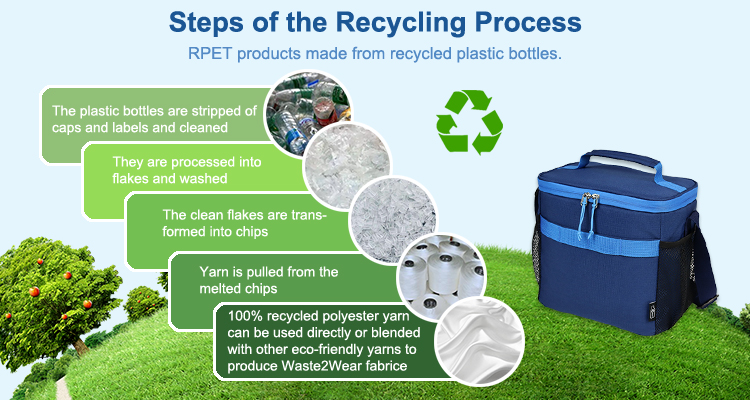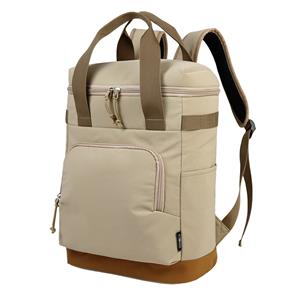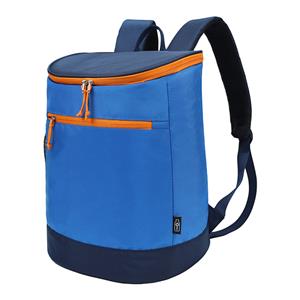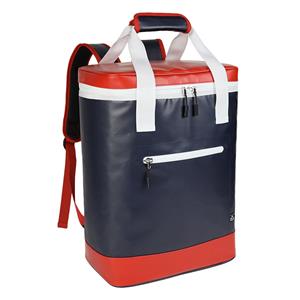more products
News
- Corporate News
- Industry News
- Blog
- Product news
Products
Featured Products
Contact Details
The Environmental Impact of RPET Products: A Sustainable Choice for a Greener Future
22-09-2025
The Recycling Process of RPET Products
- Collection and Sorting of Plastic Bottles
The RPET production process starts with the collection of used plastic bottles. These bottles are typically made from Polyethylene Terephthalate (PET), one of the most commonly used plastics in consumer products. After collection, the bottles undergo rigorous sorting to ensure only PET materials are processed. This sorting helps maintain the purity and quality of the final recycled product. - Stripping Caps, Labels, and Cleaning
Once sorted, the plastic bottles are stripped of their caps and labels. These components are often made from different materials that can interfere with the recycling process. The bottles are then thoroughly cleaned to remove any residual liquids, dirt, or contaminants. This cleaning step is crucial as it ensures the recycled material is free from impurities that could affect its performance or safety in subsequent uses. - Processing into Flakes and Washing
The cleaned bottles are fed into specialized machinery that shreds them into small flakes. These flakes are then washed again to remove any remaining contaminants. The washing process involves agitating the flakes in water and using detergents or other cleaning agents to eliminate dirt, labels, and other residues. After washing, the flakes are dried to prepare them for the next stage of processing. - Transformation into Chips
The cleaned flakes are heated and melted under controlled conditions. The molten plastic is then extruded through screens or dies to form uniform chips. These chips are cooled and solidified, resulting in a material that can be easily transported and used in various manufacturing processes. The transformation of flakes into chips is a critical step as it converts the recycled material into a form suitable for producing new products. - Production of Yarn from Melted Chips
The chips are melted once more and spun into yarn. This yarn, made entirely from recycled plastic bottles, can be used directly or blended with other eco-friendly fibers to create versatile fabrics. The resulting RPET fabric retains the durability and functionality of virgin polyester while offering significant environmental advantages. - Creation of Waste2Wear Fabrics
The RPET yarn is woven or knitted into fabrics, which are then used to manufacture a wide range of products, including cooler bags, clothing, accessories, and more. These products, often referred to as Waste2Wear, exemplify the circular economy concept, where waste is transformed into valuable resources, reducing the need for virgin materials and minimizing environmental impact.

Environmental Benefits of RPET Products
- Reduction of Plastic Waste
One of the most significant environmental benefits of RPET products is their role in reducing plastic waste. By recycling plastic bottles into RPET, we prevent these bottles from ending up in landfills or oceans, where they can take hundreds of years to decompose. This reduction in plastic waste helps mitigate pollution, protects wildlife, and preserves natural habitats. - Conservation of Natural Resources
The production of RPET reduces the demand for virgin petroleum-based resources used in manufacturing new plastic. This conservation of natural resources helps preserve ecosystems and reduces the environmental footprint associated with resource extraction and processing. - Lower Energy Consumption
Recycling plastic bottles into RPET requires less energy compared to producing virgin polyester. The energy savings during the recycling process translate into reduced greenhouse gas emissions, contributing to the fight against climate change. - Decreased Carbon Emissions
The entire RPET production process, from collecting plastic bottles to manufacturing recycled products, generates fewer carbon emissions than traditional polyester production. This reduction in carbon emissions helps mitigate the impacts of global warming and supports the transition to a low-carbon economy. - Promotion of the Circular Economy
RPET products embody the principles of the circular economy, where materials are kept in use for as long as possible, and waste is minimized. By recycling plastic bottles into new products, we extend the lifecycle of materials, reduce waste, and promote a more sustainable and resource-efficient economy. - Encouragement of Sustainable Consumer Behavior
The availability of RPET products encourages consumers to make more environmentally conscious purchasing decisions. As awareness of plastic pollution grows, consumers are increasingly seeking sustainable alternatives, and RPET products provide a practical and effective solution. By choosing RPET products, consumers actively participate in reducing plastic waste and supporting sustainable practices.
Get the latest price? We'll respond as soon as possible(within 12 hours)





